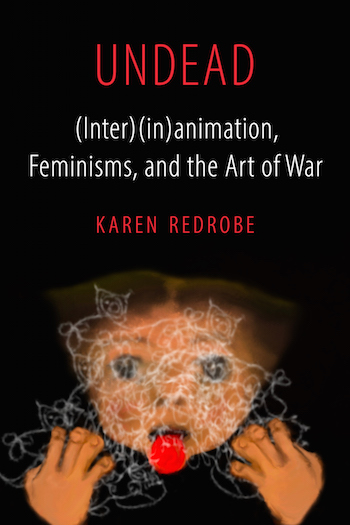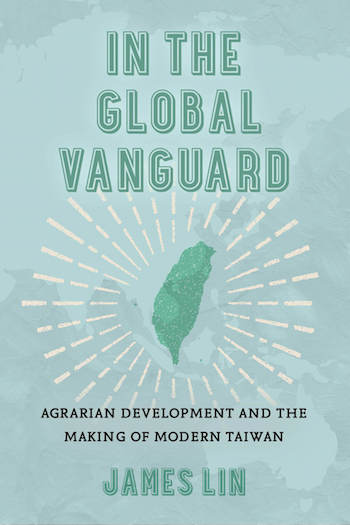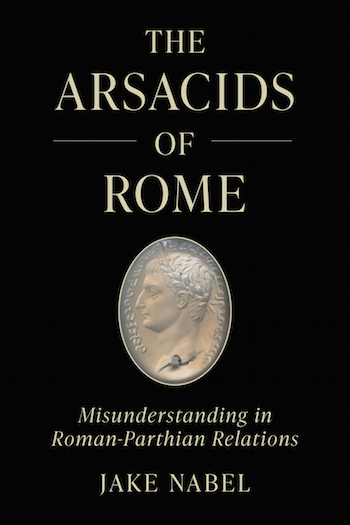



Though Japanese migration to Brazil started only at the turn of the twentieth century, Brazil is now the country with the largest ethnic Japanese population outside Japan. Collaborative Settler Colonialism examines this history as a central chapter of both Brazil’s and Japan’s processes of nation and empire building and, crucially, as a convergence of their settler colonial projects. Inspired by American colonialism and the final conquest of the U.S. Western frontier, Brazilian and Japanese empire builders collaborated to bring Japanese migrants to Brazil, which had the outcome of simultaneously dispossessing Indigenous Brazilians of their land and furthering the expansion of Japanese land and resource possession abroad. Bringing discourses of Latin American and Japanese settler colonialism into rare dialogue with each other, this book offers new insight into the Japanese empire, the history of immigration to Brazil and Latin America, and the past and present of settler colonialism.
“Sidney Xu Lu’s riveting account of Japanese emigration to Brazil is a brilliant portrait of two states and their intersecting projects of racialized nationalism and settler colonialism.” — Louise Young, Professor of History, University of Wisconsin–Madison
“An invaluable contribution to our understanding of Japan’s expansionism in Brazil and an essential resource for students and researchers.” — Martin Dusinberre, author of Mooring the Global Archive: A Japanese Ship and Its Migrant Histories
“Lu’s innovative new book brings a fresh understanding to the global dynamics behind Japanese emigration to Brazil and transnational studies of migration, diaspora, and colonialism.” — Jeffrey Lesser, author of Living and Dying in São Paulo: Immigrants, Health, and the Built Environment in Brazil
Sidney Xu Lu is Associate Professor and Annette and Hugh Gragg Chair of Transnational Asian Studies at Rice University.
Focusing on the lived experiences of Afro-Colombians processing and resisting violence against their ecological communities, Visions of Global Environmental Justice employs accounts of the supernatural narratively and analytically to frame a contemporary struggle for environmental justice. The book applies Achille Mbembe’s theorization of necropolitics to the environmental racism of the US War on Drugs in Colombia, specifically the aerial eradication of coca in the comunidades negras of the Pacific Coast. Through critical examination and deconstruction of transnational mythmaking and local oral tradition, Visions of Global Environmental Justice illustrates that non/humans rendered expendable by US-driven drug (necro)politics are indispensable to both the conceptualization and the realization of environmental justice globally. Far from being a study singularly focused on the symptoms of environmental issues, this book creatively guides us toward a broader understanding of environmental racism and justice across geographic scales and non/human agencies.
“A powerful and creative articulation of how accounts of the supernatural function as cautionary tales about socioecological limits and human/nonhuman relations. Huezo’s push for a new global environmental justice studies framework is long overdue.”— DAVID NAGUIB PELLOW, author of What is Critical Environmental Justice?
“In this remarkable, completely original examination of the War on Drugs in Colombia, Huezo employs supernatural visions in fascinating and innovative ways.” — ULRICH OSLENDER, author of The Geographies of Social Movements: Afro-Colombian Mobilization and the Aquatic Space
“A truly original and inspiring monograph, pushing the boundaries of environmental justice to consider globalization, the War on Drugs, and the supernatural.” — MICHAEL MASCARENHAS, author of Toxic Water, Toxic System: Environmental Racism and Michigan’s Water War
ALEXANDER HUEZO is Assistant Professor of Global and International Studies at the University of California, Irvine
As HIV/AIDS emerged as a public health crisis across sub-Saharan Africa, it became the subject of international interest that was at once prurient, benevolent, and interventionist. Meanwhile, the experience of living with HIV/AIDS became an object of aesthetic representation in multiple genres produced by Africans themselves. In Pandemic Genres, Neville Hoad investigates how cultural production—novels, poems, films—around the pandemic engaged public discourse. He shows that the long historical imaginaries of race, empire, and sex in Botswana, Kenya, and South Africa underwrote all attempts to bring the pandemic into public representation. Attention to genres that stage themselves as imaginary may forecast new possibilities.
“Unique and genre-busting, Pandemic Genres takes as foundational the importance of colonialism to intimacy and health, cleverly traversing a vast terrain that spans mining, state biometrics, beauty contests, American AIDS interventions, and South African AIDS denialism.” — Mark Hunter, author of Race for Education
“Shows us vividly that pandemics are not created in a vacuum but are anticipated and constructed in ways that solidify those uneven geographies of power that govern our world system. In times of pandemics, the consequences of this unevenness are laid bare.” — Kwame Edwin Otu, author of Amphibious Subjects
“Unavoidably interdisciplinary and unapologetically intimate, these reflections move beyond HIV/AIDS to illuminate how to unravel the connection between genres and any pandemics.” — Naminata Diabate, author of Naked Agency
“Eschewing a conventional survey of the literature of AIDS, Neville Hoad instead offers an original and deeply moving take on the poetics of documentary genres and the integral place of imagination and affect in political life.” — Ann Cvetkovich, author of Depression
Neville Hoad is Associate Professor of English at the University of Texas at Austin and codirector of the Bernard and Audre Rapoport Center for Human Rights and Justice at the UT School of Law. He is author of African Intimacies.
The Violence of Love challenges the narrative that adoption is a solely loving act—a narrative that is especially pervasive with transracial and transnational adoptions. Using interdisciplinary analysis, Kit W. Myers examines the adoption of Asian, Black, and Native American children by White families in the United States. He shows how race has been constructed relationally to mark certain homes, families, and nations as spaces of love and better futures—in contrast to others that are not. Propelled by different types of love, such adoptions attempt to transgress borders yet are attached to structural and symbolic forms of violence in complex ways. The Violence of Love confronts this discomforting reality to offer more capacious understandings of love and kinship.
“An exploration of transracial adoption that is both invitation and challenge: to learn more about its history; to ask hard yet necessary questions about family, care, and kinship; and to ‘find adoptee voices and listen with love,’ as Myers writes, understanding that there can be no love without truth.” — NICOLE CHUNG, author of A Living Remedy and All You Can Ever Know
“A book for anyone who wonders if the identity issues that many transracial adoptees face are outweighed by the positives of simply having a loving family.” — ANGELA TUCKER, author of “You Should Be Grateful”
“An essential resource, The Violence of Love asks and answers a provocative, paradoxical question: How can transracial or transnational adoption be an act of both love and violence, and how can we envision a different future?” — JAERAN KIM, Associate Professor of Social Work, University of Washington Tacoma
“Myers cuts through the objection that can often drown out studies of adoption: that adoptive parents love their children. This powerful book responds, Yes, but on a broad scale, that is exactly how transracial and transnational adoption accomplishes its structural violence.” — LAURA BRIGGS, author of Taking Children
KIT W. MYERS is Assistant Professor of Critical Race and Ethnic Studies at the University of California, Merced.
Why are the small and unimportant relics of Roman antiquity often the most enduring, in material form and in our affections? Through close encounters with minor things such as insects, brief lives, quibbles, irritants, and jokes, Emily Gowers provocatively argues that much of what the Romans dismissed as superfluous or peripheral in fact took up immense imaginative space. It was often through the small stuff that the Romans most acutely probed and challenged their society’s overarching values and priorities and its sense of proportion and justice. There is much to learn from what didn’t or shouldn’t matter. By marking the spots where the apparently pointless becomes significant, this book radically adjusts our understanding of the Romans and their world, as well as our own minor feelings and intimate preoccupations.
“The Small Stuff is quintessential Gowers. Written with characteristic verve and elegance, it challenges us to think again about what constitutes a subject worth pursuing.” — WILLIAM FITZGERALD, Professor of Latin Language and Literature, King’s College London
“The bold essayistic orientation of Emily Gowers’s book—in which wit, subversive potential, and interpretive levity stunningly come together—sets a new standard, which many will no doubt attempt to imitate.” — MARIO TELÒ, author of Greek Tragedy in a Global Crisis: Reading through Pandemic Times
EMILY GOWERS is Professor of Latin Literature at the University of Cambridge and author of Rome’s Patron: The Lives and Afterlives of Maecenas.
DNA, Race, and Reproduction helps readers inside and outside of academia engage with the current genomic landscape. The volume brings together experts in law, medicine, religion, history, anthropology, philosophy, and genetics to investigate how scientists, medical professionals, and laypeople use genomic concepts to construct racial identity and make reproductive decisions. It interrogates how DNA figures in the reproduction of racialized bodies and the racialization of reproduction and examines the privileged position from which genomic knowledge claims to speak about human bodies, societies, and activities. The book begins from the premise that reproduction forces a confrontation between biomedical, scientific, and popular understandings of genetics, and that those understandings are often racialized. It therefore centers reproduction as both a site of analysis and an analytic lens.
“Rather than approaching DNA, race, and reproduction as isolated topics, this collection integrates insights from various disciplines to offer a holistic perspective. It challenges conventional assumptions about race and genetics and exposes the flaws in using racial, ethnic, and ancestral categories as proxies for genetic variation.” — KIMBERLY ZAYHOWSKI, Assistant Professor at Boston University Chobanian & Avedisian School of Medicine
“Expertly tackles the troublesome relationship between our genes and our race. Merging critical scientific and humanistic perspectives, this book provides much-needed insights into how society can better construct identity and heredity, as well as re-envision our fundamental understanding of mind and body.” — RINA BLISS, Associate Professor of Sociology at Rutgers University and author of Rethinking Intelligence and What’s Real about Race?
EMILY KLANCHER MERCHANT is Associate Professor of Science and Technology Studies at the University of California, Davis. She is the author of Building the Population Bomb.
MEAGHAN O’KEEFE is Associate Professor of Religious Studies and leads the Medical Humanities Program at the University of California, Davis.
This groundbreaking collection of essays from leading film historians features original research on movie magazines published in China, France, Germany, India, Iran, Latin America, South Korea, the U.S., and beyond. Vital resources for the study of film history and culture, movie magazines are frequently cited as sources, but rarely centered as objects of study. Global Movie Magazine Networks does precisely that, revealing the hybridity, heterogeneity, and connectivity of movie magazines and the important role they play in the intercontinental exchange of information and ideas about cinema. Uniquely, the contributors in this book have developed their critical analysis alongside the collaborative work of building digital resources, facilitating the digitization of more than a dozen of these historic magazines on an open-access basis.
“A must-read for film scholars and a must-assign for film history courses.” — ALLYSON NADIA FIELD, University of Chicago
“These richly detailed contributions spark exciting new questions for international historical exploration.” — KATHRYN FULLER-SEELEY, University of Texas at Austin
“An amazing collection of essays on the little-studied phenomenon of movie magazines throughout the twentieth century. Wide-ranging and invaluable.” — RICHARD ABEL, University of Michigan
ERIC HOYT is Kahl Family Professor of Media Production in the Department of Communication Arts at the University of Wisconsin–Madison. He is the author of Ink-Stained Hollywood: The Triumph of American Cinema’s Trade Press and Hollywood Vault: Film Libraries before Home Video. He also serves as Director of the Media History Digital Library and Director of the Wisconsin Center for Film and Theater Research.
KELLEY CONWAY is Professor of Film in the Department of Communication Arts at the University of Wisconsin–Madison. She is the author of Agnès Varda and Chanteuse in the City: The Realist Singer in French Film.
Predatory Data illuminates the connections between the nineteenth century’s anti‑immigration and eugenics movements and today’s sprawling systems of techno-surveillance and algorithmic discrimination. Historical and globally multisited, the book examines how dispossession, misrecognition, and segregation are being magnified by dominant knowledge institutions in the Age of Big Data.
Technological advancement has a history, including efforts to chart a path for alternative futures. Anita Say Chan explores these important parallel stories of defiant refusal and liberatory activism, such as how feminist, immigrant, and other minoritized actors worked to develop alternative data practices. Their methods and traditions, over a century old, continue to reverberate through global justice‑based data initiatives today. Predatory Data charts a path for an alternative historical consciousness grounded in the pursuit of global justice.
“Anita Say Chan highlights the power of community‑based alternatives to extractive data that are rooted in feminist, people of color, and Indigenous perspectives. An essential book for anyone looking to envision more equitable technological futures.” — SHAKA McGLOTTEN, author of Virtual Intimacies
“An essential retelling of how data happened that also rethinks whose futures really matter in the worlds that data and AI are now building.” — NICK COULDRY, coauthor of The Costs of Connection
“Chan inspires us to understand the power and politics of data, and how to fight for an independent and inclusive future without compromising our humanness.” — MARY L. GRAY, MacArthur Fellow and coauthor of Ghost Work
“Predatory Data is the framework that we have been waiting for—to refuse, resist, and reimagine new possibilities as a part of decolonizing algorithmic and data practices.” — NISHANT SHAH, Associate Professor and Director of the Digital Narratives Studio, Chinese University of Hong Kong
ANITA SAY CHAN is a feminist and decolonial scholar of science and technology studies and Associate Professor of Information Sciences and Media Studies at the University of Illinois Urbana‑Champaign.
Between Household and State departs from dynastic narrations of the Mughal past to highlight the role of elite households and familial networks in peninsular India, the only region of the subcontinent never fully incorporated into the imperial realm. Drawing on rare documentary and literary materials in Persian and Urdu alongside the Dutch East India Company’s archives, this book takes readers on a journey from military forts and regional courts in the Deccan to the ports and weaving villages of the Coromandel Coast. It examines how regional elite alliances, feuds, and material exchanges intersected with imperial institutions to create new forms of affinity, belonging, and social exclusion. Subah Dayal brings attention to the importance of ghar—or home—in the creation of forms of mobility that anchored the Mughal frontier across the variable geography of peninsular India in the seventeenth century.
“Subah Dayal’s impressive archival discoveries open up entirely new ways of thinking about mobility in South Asia in this exciting multilingual study.” — Purnima Dhavan, author of When Sparrows Became Hawks: The Making of the Sikh Warrior Tradition, 1699–1799
“A significant contribution. This engaging book should be required reading for anyone interested in the history of early modern South Asia and beyond.” — Ali Anooshahr, Professor of History at University of California, Davis
“Through a careful reading of historical and literary texts and archival documents, Dayal provides many original insights into the world of the seventeenth century.” — Muzaffar Alam, George V. Bobrinskoy Professor of South Asian Languages and Civilizations at University of Chicago
Subah Dayal is Assistant Professor in the Gallatin School of Individualized Study at New York University. Her writings have appeared in the Journal of the Economic and Social History of the Orient and Comparative Studies of South Asia, Africa and the Middle East.
Expanding Verse explores experimental poetic practice at key moments of transition in Japan’s media landscape from the 1920s to the present. Andrew Campana centers hybrid poetic forms—many of which have never been examined in detail before—including the cinepoem, the tape recorder poem, the protest performance poem, the music video poem, the online sign language poem, and the augmented reality poem. Drawing together approaches from literary, media, and disability studies, he contends that poetry actively aimed to disrupt the norms of media in each era. For the poets in Expanding Verse, poetry was not a medium in and of itself but a way to push back against what new media technologies crystallized and perpetuated. Their aim was to challenge dominant conceptions of embodiment and sensation, as well as who counts as a poet and what counts as poetry. Over and over, poetic practice became a way to think about each medium otherwise, and to find new possibilities at the edge of media.
“Approaches the history of modern Japanese literature from an entirely new angle—media ecologies of poetry. The result is nothing less than an alternative history of literature in Japan as well as a history of media that is by turns surprising and deeply satisfying.” THOMAS LAMARRE, author of The Anime Ecology: A Genealogy of Television, Animation, and Game Media
“Expanding Verse is original, timely, and substantial. Warm and inviting— readers will be left feeling much informed about the poets’ respective lives, challenges, and adventures.” ATSUKO SAKAKI, author of Train Travel as Embodied Space-Time in Narrative Theory
“This book impresses on every page as a stunning work of scholarly rigor and innovative thinking. Andrew Campana rethinks the literary form, challenging us to reconfigure literary and media studies.” JONATHAN E. ABEL, author of The New Real: Media and Mimesis in Japan from Stereographs to Emoji
ANDREW CAMPANA is Assistant Professor of Japanese Literature and Media at Cornell University.

In Circulations, Courtney Handman examines the surprising continuities in modernist communication discourses that shaped both colonial and decolonial projects in Papua New Guinea. Often described as a place with too many mountains and too many languages to be modern, Papua New Guinea was seen as a space of circulatory primitivity—where people, things, and talk could not move. Colonial missionaries and administrators, and even anticolonial delegations to the United Nations that spearheaded demands for Papua New Guinea’s independence in the 1950s, argued that this circulatory primitivity would only be overcome through the management of communications infrastructures, bureaucratic information flows, and the introduction of English. Innovatively bringing together analyses of communications infrastructures such as radios, airplanes, telepathy, bureaucracy, and lingua francas, Circulations argues for the critical role of communicative networks and communicative imaginaries in political processes of colonialism and decolonization worldwide.

Indefensible Spaces examines the national crisis of the policing of housing through the story of Black community building in the Antelope Valley. Tracing the history of Los Angeles County’s northernmost outpost from its segregated development in the postwar aerospace boom through its evolution into a destination for those priced, policed, and evicted out of Los Angeles, Rahim Kurwa tells the story of how the valley resisted racial integration through the policing of subsidized housing—and how Black tenants and organizers have worked to overcome it. This book sheds light on the intersection of the nation's policing and housing crises, offering powerful lessons for achieving housing justice across the country.

In this book, Dana Simmons explores the enduring production of hunger in US history. Hunger, in the modern United States, became a technology—a weapon, a scientific method, and a policy instrument. During the nineteenth century, state agents and private citizens colluded in large-scale campaigns of ethnic cleansing using hunger and food deprivation. In the twentieth century, officials enacted policies and rules that made incarcerated people, welfare recipients, and beneficiaries of foreign food aid hungry by design, in order to modify their behavior. With the advent of ultraprocessed foods, food manufacturers designed products to stimulate cravings and consumption at the expense of public health. Taking us inside the labs of researchers devoted to understanding hunger as a biological and social phenomenon, On Hunger examines the continuing struggle to produce, suppress, or control hunger in America.

Situated at the crossroads of author Stacie Selmon McCormick’s lived experiences as a Black birthing person, mother, and scholar, We Are Pregnant with Freedom traces Black sexual and reproductive liberation narratives through the storytelling work of those most marginalized in reproductive justice research and discourse. The book traces McCormick’s loss of twin sons to stillbirth, her near-fatal experience with preeclampsia, and her subsequent reproductive justice research and advocacy work with The Afiya Center, a Black-led reproductive justice organization in Texas. Its multidisciplinary narrative shatters the silences wrought by stigma and historical erasure, ultimately proposing a new grammar of reproductive justice that can serve the people as a vehicle for community building, healing, and bodily liberation.

What does everyday life look like for young men who flee to Europe, survive, and are then assigned temporary housing? Hypersurveillance or parallel normality, irrelevance or even nothingness? Based on a four-year ethnography, Undoing Nothing recounts the untold story of Italian asylum seekers' struggles to produce relevance—that is, to carve out meaning, control, and direction from their legal and existential liminality. Their ways of inhabiting space and time rest on a deeply ambivalent position: together and alone, inside and outside, absent and present. They dwell as racialized bodies in the center while their selves inhabit a suspended trans-local space of moral economies, nightmares, and furtive dreams. This book illuminates a distinctly modern form of purgatory, offering both a perceptive critique of state responses to the so-called refugee crisis and nuanced psychological portraits of a demographic rarely afforded narrative depth and grace.

Immigrant residents seeking legal status in the United States face a catch-22: the documents that they must present to immigration officials—bank records, paycheck stubs, and contracts in their own names—are often challenging for undocumented people to obtain. In this book, Susan Bibler Coutin analyzes how undocumented immigrants and the attorneys and paralegals who represent them attempt to surmount this and other documentary challenges. Based on four years of fieldwork and volunteer work in the legal services department of an immigrant-serving nonprofit and in-depth interviews with those seeking status, On the Record explores these complex dynamics by taking seriously both documents themselves and the legal craft that has developed around their use.

Moorings follows sailors from the Gulf of Kachchh in India as they voyage across the ocean on mechanized wooden sailing vessels known as vahans, or dhows. These voyages produce capital through moorings that are spatial, moral, material, and conceptual. With a view from the dhow, the book examines the social worlds of Muslim seafarers who have been rendered invisible even as they maneuver multiple regulatory regimes and the exigencies of life, navigating colonialism, neoliberalism, the rise of Hindutva, insurgency, climate change, and border regimes across the Indian Ocean. Based on historical and ethnographic research aboard ships, at ports and religious shrines, and in homes, Moorings shows how capitalism derives value from historically sedimented practices grounded in caste, gender, and transregional community-based forms of regulation.

Leftover Women in China offers an intimate empirical and theoretical analysis of the lived experience and legal consciousness of China’s “leftover women,” women who remain unmarried in their late twenties and beyond. Drawing on in-depth interviews and focus groups, Qian Liu examines how leftover women—including women who prefer to remain single, those who are waiting for the right husband, and queer women—deal with parental and social pressure, as well as the denial of their right to have children outside of heterosexual marriage. Sensitively exploring the distinctive patterns of parent-child interactions in Chinese families, Liu invites readers to understand leftover women’s observance, evasion, and manipulation of the law in the context of intergenerational relationships and obligations.

This book examines the spaces, practices, and ideologies of incarceration in the ancient Mediterranean world, covering the period from 300 BCE to 600 CE. By analyzing a wide range of sources—including legal texts, archaeological findings, documentary evidence, and visual materials—Matthew D. C. Larsen and Mark Letteney argue that prisons were integral to the social, political, and economic fabric of ancient societies. Ancient Mediterranean Incarceration traces the long history of carceral practices, considering the ways in which the prison has been fundamentally intertwined with issues of class, ethnicity, gender, and imperialism for over two millennia. By foregrounding the voices and experiences of the incarcerated, Larsen and Letteney demonstrate the extraordinary durability of carceral structures across time, and call for new historical consciousness to arise around contemporary practices of incarceration.

Focusing on the provision of gender-affirming care, Health Care Civil Rights analyzes the difficulties and potential of discrimination law in healthcare settings. The application of civil rights law could be a powerful response to health inequalities in the U.S., but conservative challenges and the complex and fragmented nature of our health care system have limited the real-world success of this strategy. Revealing deep divides and competing interests that reverberate through patient experiences, insurance claims, and courtroom arguments, Anna Kirkland explains what health care civil rights are, how they work in theory and practice, and how to strengthen them.

Although the history of Indonesian music has received much attention from ethnomusicologists and Western composers alike, almost nothing has been written on the interaction of missionaries with local culture. This study represents the first attempt to concentrate on the musical dimension of missionary activities in Indonesia. In fourteen essays, a group of distinguished scholars show the complexity of the topic: while some missionaries did important scholarship on local music, making recordings and attempting to use local music in services, others tried to suppress whatever they found. Many were collaborating closely with anthropologists who admitted freely that they could not have done their work without them. And both parties brought colonial biases into their work. By grappling with these realities and records, this book is a collective effort to decolonize the project of making music histories.

Delta Futures explores the competing visions of the future that are crowding into the Bengal Delta's imperiled present and vying for control of its ecologically vulnerable terrain. In Bangladesh's southwest, development programs that imagine the delta as a security threat unfold on the same ground as initiatives that frame the delta as a conservation zone and as projects that see the delta's rivers and ports as engines for industrial growth. Jason Cons explores how these competing futures are being brought to life: how they are experienced, understood, and contested by those who live and work the delta, and the often surprising entanglements they engender—between dredgers and embankments, tigers and tiger prawns, fishermen and forest bandits, and more. These future visions produce the delta as a "climate frontier," a zone where opportunity, expropriation, and risk in the present are increasingly framed in relation to disparate visions of the delta's climate-affected future.

Undead examines the visual culture of war, broadly understood, through the lens of animation. Focusing on works in which relational, intermedial, and variably paced practices of “(inter)(in)animation” generate aesthetic tactics for thinking about, feeling, and reframing war, Karen Redrobe analyzes works by artists including Yael Bartana, Nancy Davenport, Kelly Dolak and Wazhmah Osman, Gesiye, David Hartt, Helen Hill, Onyeka Igwe, Maryam Mohajer, Ibrahim Nasrallah, Mary Reid Kelley, and Patrick Kelley. Deftly moving between cinema and media studies, peace and conflict studies, and art history, Undead is an interdisciplinary feminist meditation on the complex relationship between states of war and the discourses, infrastructures, and institutions through which memory, change, and understanding are made.

In just half a century, Taiwan transformed from an agricultural colony into an economic power, spurred by efforts of the authoritarian Republic of China government in land reform, farmers associations, and improved crop varieties. Yet overlooked is how Taiwan brought these practices to the developing world. In the Global Vanguard elucidates the history and impact of the “Taiwan model” of agrarian development by incorporating how Taiwanese experts took the country’s agrarian success and exported it throughout rural communities across Africa and Southeast Asia. Driven by the global Cold War and challenges to the Republic of China’s legitimacy, Taiwanese agricultural technicians and scientists shared their practices, which they argued were better suited for poor, tropical societies in the developing world. These development missions, James Lin argues, were projected in Taiwan as proof of the ruling government’s modernity and technical prowess and were crucial to how the state sought to hold onto its contested position in the international system and its rule by martial law at home.

At the beginning of the common era, the two major imperial powers of the ancient Mediterranean and Near East were Rome and Parthia. In this book, Jake Nabel analyzes Roman-Parthian interstate politics by focusing on a group of princes from the Arsacid family—the ruling dynasty of Parthia—who were sent to live at the Roman court. Although Roman authors called these figures “hostages” and scholars have studied them as such, Nabel draws on Iranian and Armenian sources to argue that the Parthians would have seen them as the emperor's foster children. These divergent perspectives allowed each empire to perceive itself as superior to the other, since the two sides interpreted the exchange of royal children through conflicting cultural frameworks. Moving beyond the paradigm of great powers in conflict, The Arsacids of Rome advances a new vision of interstate relations with misunderstanding at its center.

Today, Morocco’s hip hop artists are vital to their country’s reputation as diverse, creative, and modern. But in the 1990s and 2000s, teenage amateurs shaped their craft and ideals together as the profound socioeconomic changes of neoliberalization swept through their neighborhoods. Values That Pay traces Moroccan hip hop’s trajectory from sidewalk cyphers and bedroom studios to royal commendations and international festivals. Kendra Salois draws from more than ten years of research into her interlocutors’ music and moral reasoning to frame this institutionalization around the constitutive tensions of hip hop aesthetics and neoliberal life. Entrepreneurial artists respond to their unavoidable complicity with an extractive state through aesthetic and interpersonal sincerity, educating their fans on the risks and responsibilities of contemporary citizenship. Salois argues that over the past forty years, Moroccan hip hop practitioners have transformed not only themselves but also what it means to be an ethical citizen in a deeply unequal nation.

Nairobi Hip Hop Flow is an interdisciplinary study that combines ethnographic methods, political history, and music and performance analysis to illustrate the richness of hip hop's embodied performance practices. RaShelle R. Peck examines underground rap culture in Nairobi to illustrate how hip hop artists engage with political seriousness in lyrics and sound and foster a creative playfulness using bodily movement. Through these artists' embodiments, a persistent diasporic blackness circulates, indigenizing the music and working alongside lyrical content to interrogate Kenya's sociopolitical landscape. Peck presents an unprecedented study of Nairobi artists' interactions with localized lyrics and globally signified performative, masculinist, and diasporic embodiments—one that is critical for understanding how hip hop espouses a globalized locality.